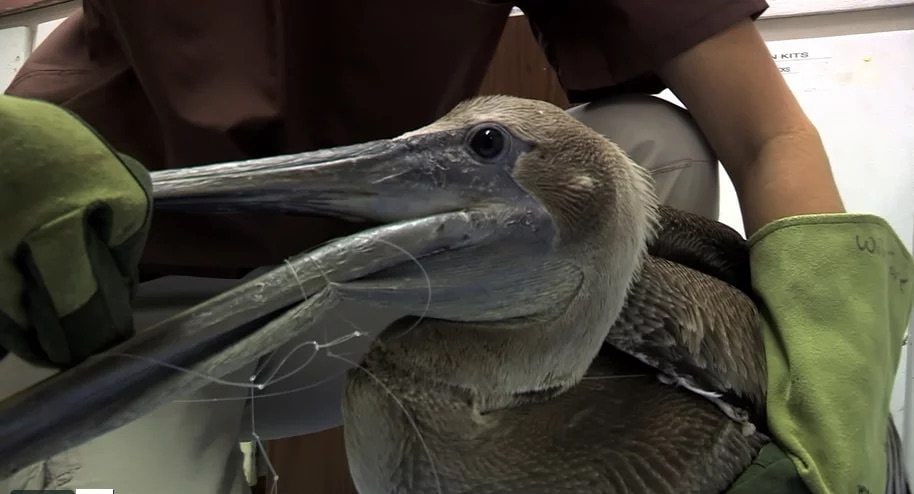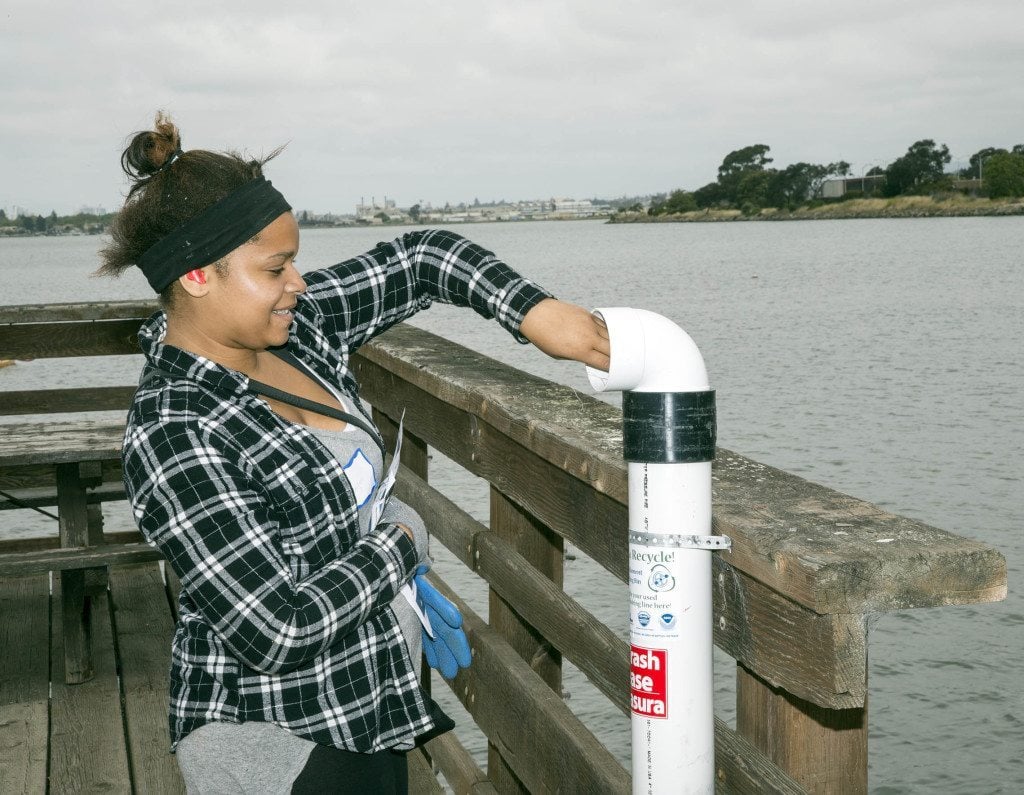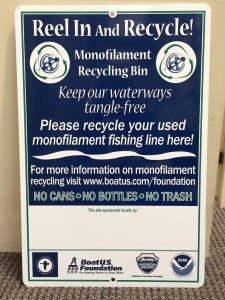Monofilament recycling spreads to SF
In 2015, Golden Gate Bird Alliance started an initiative to save the lives of S.F. Bay water birds and marine mammals through the recycling of monofilament fishing line. Our volunteers built recycling containers out of PVC pipe, and we arranged for them to be placed at popular East Bay fishing spots. This week, the Port of San Francisco followed suit, thanks to the initiative of filmmaker Judy Irving. The following is a story that appeared on KTVU’s web site.
Receptacles for used recreational fishing line and hooks, which could cause the demise of pelicans, have been placed this week at nine popular fishing spots in San Francisco, port officials said today.
The receptacles were installed Monday and Tuesday at locations along San Francisco Bay, including Hyde Street Harbor, Fisherman’s Wharf, Pier 7, Pier 14, Rincon Park, Brannan Street Wharf Park, Aqua Vista Park, Bayview Gateway Park and Heron’s Head Park.
“Getting tangled up in fishhooks and fishing line are two of the most common problems that pelicans face in the wild,” documentary filmmaker Judy Irving said.

Irving produced and directed “Pelican Dreams,” a story about pelicans in the wild, as well as “The Wild Parrots of Telegraph Hill.”
The receptacles are made from 6-inch plumbing pipe, which was fastened to the pier at Pier 14. The pipe can be removed and the line and hooks collected for recycling.
“It will save pelicans’ lives,” Irving said.
A tenth receptacle will be installed at Pier30/32 and talks with federal officials are expected to begin soon about installing receptacles on federal lands around San Francisco such as in the Golden Gate National Recreation Area, port officials said.

Port staff may install receptacles at other San Francisco locations too.
“We know that fishing line can really harm wildlife,” the port’s interim Executive Director Elaine Forbes said. She said the port takes environmental stewardship very seriously.
Irving said San Francisco officials acted quickly after she asked Supervisor Aaron Peskin whether anything could be done to stop the harm from fishing hooks and lines.
Peskin met with Forbes and struck the agreement. The receptacles cost $100 to make. The whole project cost $1,200, Forbes said.
“This is truly government at its best: responsive to residents’ ideas and pushing cost-effective solutions, all within a relatively short period of time,” Peskin said in a statement.
“This is all within the last couple of months,” Irving said, and the benefits to pelicans are huge.
Port staff will be installing directions for the use of the receptacles in multiple languages such as Vietnamese.
But Irving warned that the success of the receptacles depends on educating fishermen how to use them. She hopes that perhaps a program can be developed to educate the fishing public.
Irving credited Cindy Margulis, Executive Director of the Golden Gate Bird Alliance, for prompting her to find a way to get the receptacles installed.
“Oh, yes! That’s fantastic,” Margulis said when she heard the news. “Fishing line is a real serious entanglement hazard for wildlife, especially pelicans.”
But, the benefits go beyond saving pelicans from harm. The line is melted down and is made into an artificial reef for freshwater fish living under piers, which often loses all vegetation because of fishing.
“It’s a full circle environmental win,” Margulis said.

